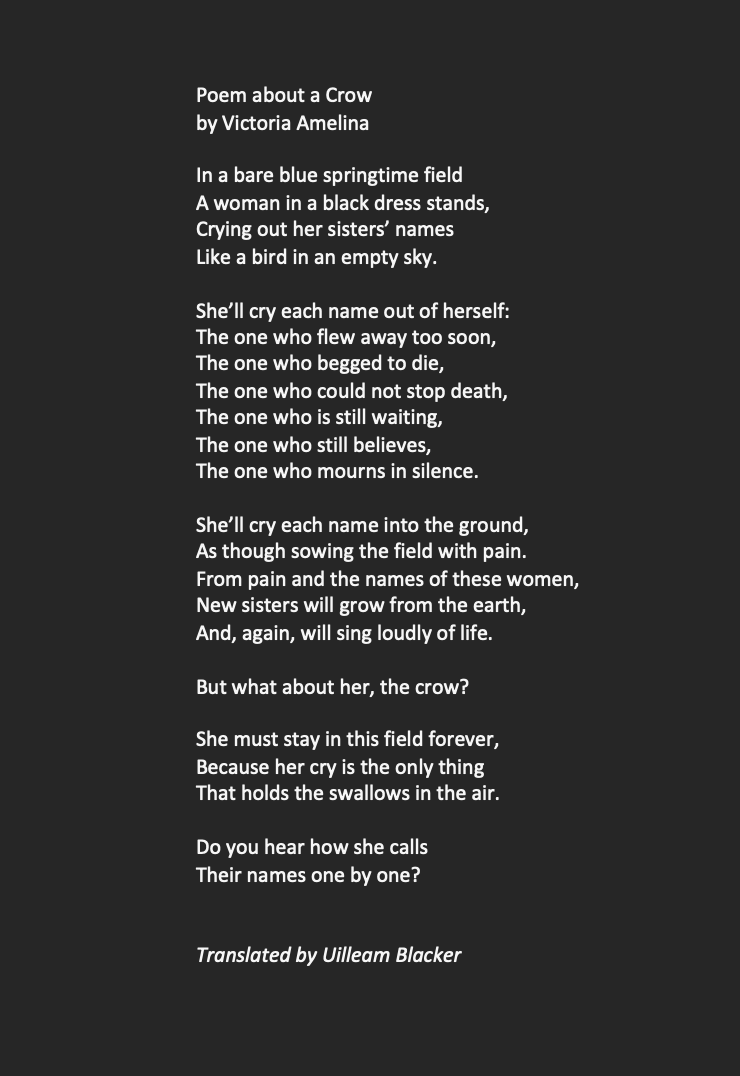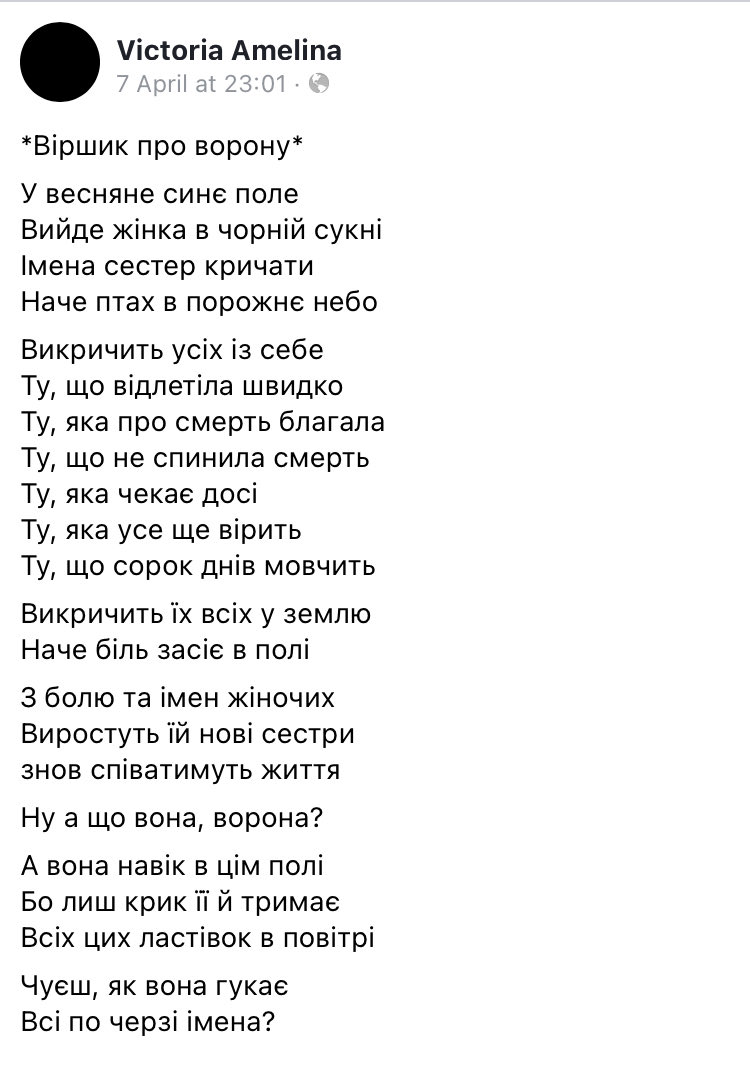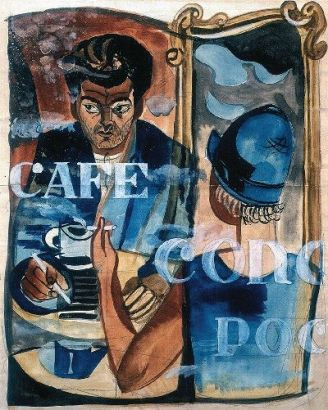When Victoria Amelina spoke at @UCLSSEES in April, she'd just written a poem about her experiences talking to women and documenting Russian war crimes in de-occupied areas. Here's a video of her reading the original; my translation is below. So painful to listen to this now. 1/2
'Poem about a Crow' by Victoria Amelina, inspired by her work interviewing women who lived through occupation. She was writing a book on women's experiences of the war. Another Ukrainian book that will never be finished because of Russian bombs & bullets. 2/2 

• • •
Missing some Tweet in this thread? You can try to
force a refresh

 Read on Twitter
Read on Twitter















